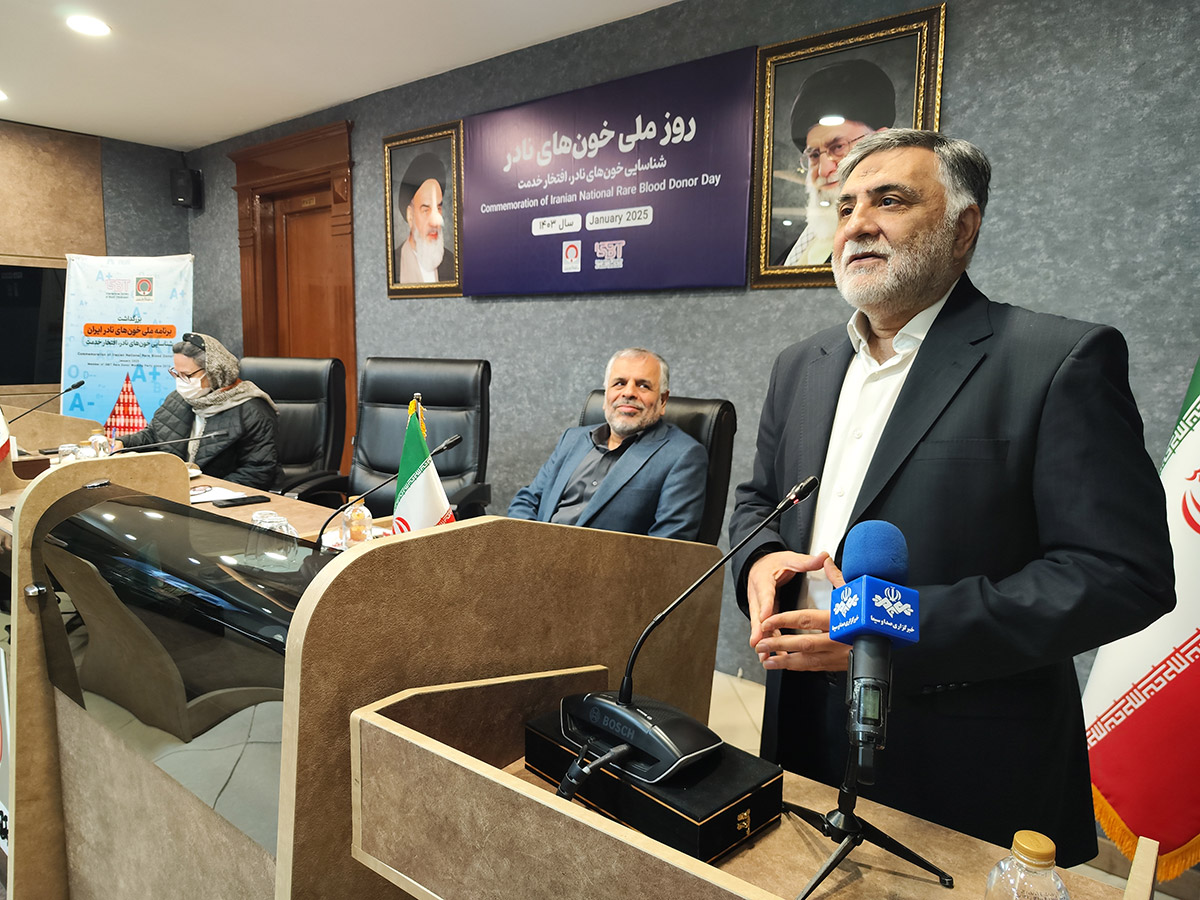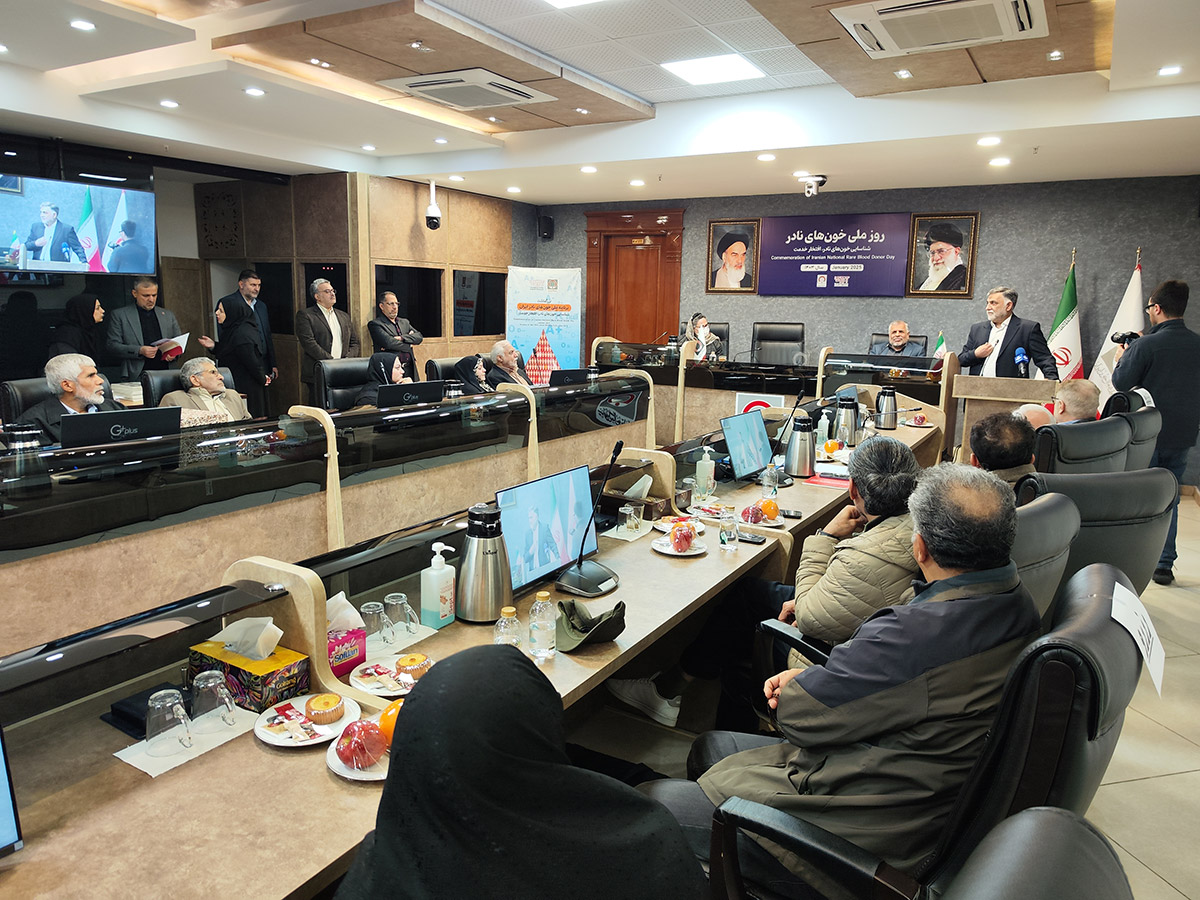 27 January 2025, Tehran, Islamic Republic of Iran – A wave of gratitude and hope swept through the headquarters of the Iran Blood Transfusion Organization (IBTO) in Tehran on 22 January 2025. The occasion was National Rare Blood Day, a day dedicated to celebrating the lives saved, challenges overcome and unwavering commitment to ensuring every individual, regardless of their blood type, has a fighting chance at life.
27 January 2025, Tehran, Islamic Republic of Iran – A wave of gratitude and hope swept through the headquarters of the Iran Blood Transfusion Organization (IBTO) in Tehran on 22 January 2025. The occasion was National Rare Blood Day, a day dedicated to celebrating the lives saved, challenges overcome and unwavering commitment to ensuring every individual, regardless of their blood type, has a fighting chance at life.
The event was a vibrant tapestry of individuals united by a common cause. Health professionals, whose expertise and dedication form the backbone of rare blood management, mingled with renowned artists and influential public figures, lending their voices to amplify the message of hope and solidarity. Families shared stories of loved ones snatched from the brink of despair thanks to the life-saving power of rare blood transfusions.
At the heart of this gathering was Dr Syed Jaffar Hussain, WHO Representative and Head of Mission to the Islamic Republic of Iran, who delivered a keynote address in which he commended the country’s unwavering dedication to tackling the unique challenges surrounding rare blood, emphasizing the critical importance of collaboration, innovation and unwavering determination in this global endeavour.
Dr Hussain painted a vivid picture of the struggles faced by those with rare blood types, individuals who often find themselves in desperate need, their lives hanging in the balance as they search for that elusive, compatible match. He praised the country’s steadfast commitment to equitable health care access, ensuring that no one is left behind, regardless of their blood type.
The event served as a powerful reminder that behind every successful transfusion, behind every life saved, lies the selfless act of a blood donor. Dr Hussain paid tribute to these unsung heroes, recognizing their generosity and unwavering commitment to the well-being of others. “Blood donors,” he declared, “represent the epitome of human solidarity, offering a lifeline to those in need without expecting anything in return.”
 WHO, Dr Hussain emphasized, believes that universal health coverage must encompass access to safe blood and blood products. He lauded IBTO’s leadership in blood safety and transfusion services, highlighting their remarkable achievement of a 100% voluntary, non-remunerated blood donation system, a testament to the principles of universal health coverage in action. He further commended the establishment of the pioneering national programme on rare blood in 2008.
WHO, Dr Hussain emphasized, believes that universal health coverage must encompass access to safe blood and blood products. He lauded IBTO’s leadership in blood safety and transfusion services, highlighting their remarkable achievement of a 100% voluntary, non-remunerated blood donation system, a testament to the principles of universal health coverage in action. He further commended the establishment of the pioneering national programme on rare blood in 2008.
National Rare Blood Day is not only a celebration of achievements but is also a call to action. Dr Hussain urged continued collaboration, research and investment in transfusion medicine, emphasizing the need for a robust and globally connected network of systems and policies to address the unique needs of rare blood patients.
In his speech, Dr Hussain also highlighted the interest of the Group of 5 (G5) countries in experience-sharing and collaboration with the Islamic Republic of Iran, underscoring the country’s capacity to serve as a model for other nations in the realm of blood transfusion and rare blood management. He said that the country’s expertise, innovative practices and advanced health care infrastructure provide valuable lessons for other countries striving to enhance their health care systems.
In closing, Dr Hussain extended his deepest gratitude to the IBTO for their unwavering dedication to advancing blood transfusion services and ensuring equitable access to rare blood. He thanked the blood donors, whose selflessness serves as an inspiration to all.
The event concluded with a renewed commitment to innovation, partnership and universal health coverage, leaving attendees with a sense of determination to continue the fight for rare blood access, ensuring that every drop counts, every donation matters and every life is valued.
The G5 was established in 2005 as an initiative of the Islamic Republic of Iran through a memorandum of understanding with its neighbours Afghanistan, Iraq and Pakistan, along with WHO. Tajikistan later joined as an observer. It aims to provide a platform to strengthen subregional cooperation on health based on historical, geographical and cultural links and common health problems.


